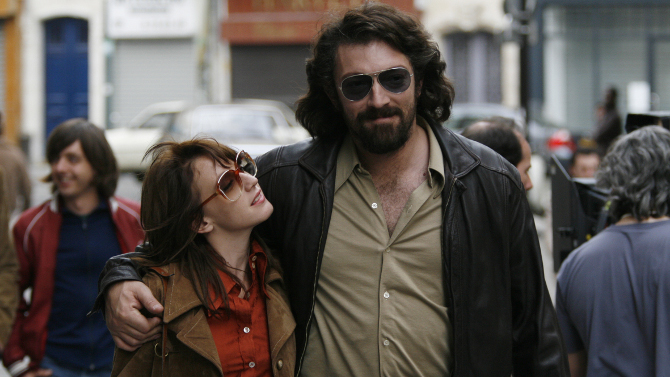
Murder ‘Mystery’
Sometimes a movie just doesn’t fit perfectly within its own genre... going against a few of the tropes that define what something is, all while hitting enough of them to still be what it is – confusing! That’s the case with this latter-day Italian giallo, Mystère... sometimes better known by its English title Dagger Eyes (1983). Co-written and directed by Carlo Vanzina, the film opens with a rather impressive, though more crime inspired assassination in Rome... resembling the real life John F. Kennedy car killing. It will start a chain reaction of murders that will rock the Eternal City.
-
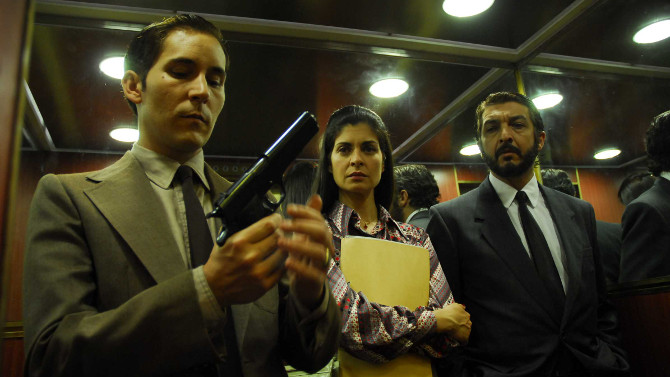
The ‘Eyes’ Have It
The Secret in Their EyesJanuary 17, 2017The saying ‘the eyes are the windows to the soul’ is perhaps no better explored than in the Argentinian Academy Award winning (for Best Foreign Language Film) 2009 motion picture The Secret in Their Eyes. Though the face is often inscrutable, as many put on masks to hide their true feelings from those around them, the eyes truly show the love, hate, lust, passion, pain regret and confusion that lies just below the mysterious facade. Co-written, directed, edited and produced by Juan José Campanella, the story follows retired criminal investigator Benjamín Esposito (Ricardo Darín) as he contemplates the innumerable hours he spent on the Liliana Coloto (Carla Quevedo) murder case (it is his white whale) by way of writing a novel. Struggling with a proper beginning, he visits Judge Irene Menéndez Hastings (Soledad Villamil), who he worked with all those years ago (the murder took place in 1974).
-
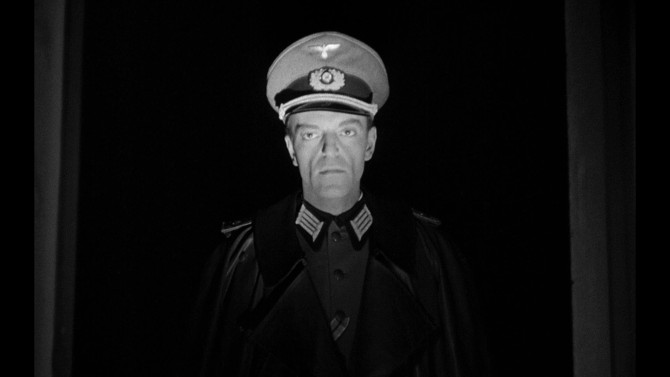
The Sound of Silence
Le Silence de la MerDecember 9, 2016Made with a surprisingly nuanced touch and a quiet grace by a first time filmmaker, Jean-Pierre Melville’s (Le Samouraï) 1949 drama Le Silence de la Mer is a philosophical study in how the lives of two individuals are affected when an occupying German soldier billets at their house, and, in turn, how living in their home changes him during World War II. Based upon Jean Bruller’s novel of the same name (which he published under the nom de plume Vercors), it became a symbol of resistance against the Nazi occupation of France (Melville himself was a part of the French Resistance, as was Bruller). As an interesting sidenote, Bruller discovered that Melville was planning on making the movie without the rights to his work. Meeting up with the filmmaker, he threatened to burn the negative if he did not like it, yet he allowed him to make the movie in his own home just outside of Paris. The pact was that Bruller would show his version to 24 former Resistance members and that they would have to unanimously give it their blessing (or Melville would burn the negative in front of the author). 23 of 24 voted in favour, the sole individual to go against the crowd did so not because he disagreed with the content of the film, but rather, how he found himself as part of the panel (as a last minute substitute – which offended him). Melville won out and Le Silence de la Mer became a huge hit in France.
-
Mais Oui, Crime Spree!
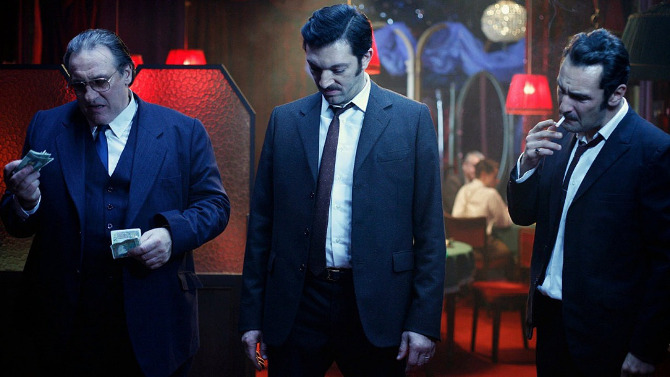 Mesrine Part 1: Killer InstinctMesrine Part 2: Public Enemy #1December 4, 2016
Mesrine Part 1: Killer InstinctMesrine Part 2: Public Enemy #1December 4, 2016A two part feature, Jean-François Richet’s action crime films Mesrine Part 1: Killer Instinct and Mesrine Part 2: Enemy #1 are best watched when paired together. That is why I am utilizing my dual review feature to discuss both here today. Together, running a little over four hours, the story looks at the life of real life figure Jacques Mesrine (Vincent Cassel) – brought to vivid life by the talented French actor, who is able to capture the man’s charm and Robin Hood (thief) appeal, as well as the scary side that bubbles just below the surface. From its very onset, we are drawn into the suspense-filled tale, as Richet utilizes a split screen effect (and sometimes more) to ratchet up the ominous foreboding. Resembling something from a Brian De Palma flick, it is an effective way to have us looking over our shoulder for some unknown threat. By the end of the sequence, we know the fate of our elusive figure and are transported back to learn the entire sordid tale. Part 1 spans the years 1959-1972.
-
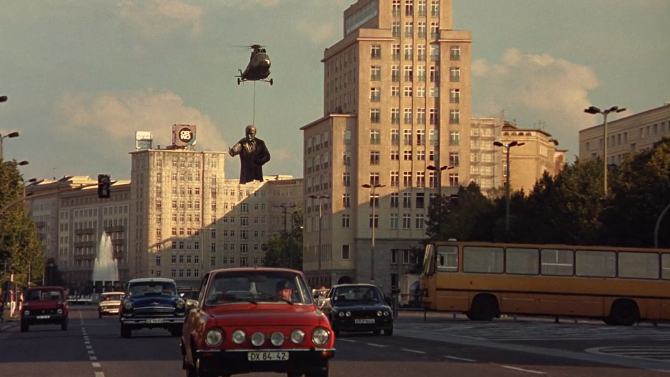
“Mr. Gorbachev – Tear Down This Wall”
Good Bye Lenin!November 6, 2016It would be hard not to argue that the fall of the Berlin Wall was one of the most iconic moments of the last thirty years. Dividing families, separating a city, forming a chasm between the Western and Eastern world; the Berlin Wall was a symbol of the borders that we, as humans, put in our own way, blocking us from achieving unity and peace. The fall of the wall was an empowering and supremely positive event, and Wolfgang Becker’s 2003 film Good Bye Lenin! is a heartfelt motion picture that builds an intriguing family centred story around the iconic happening. Narrated by Alex (Daniel Brühl), a twenty-something who lives in Berlin on the east side of the wall, he transports us through a tumultuous year in his family’s life. With a father that fled to the West without his wife and children, Alex has grown up with a mother, Christiane (Katrin Saß), who has become married to the Socialist Fatherland. An idealist and ardent patriot, she is enamoured with the system that she lives within. Alex’s older sister, the quirky Ariane (Maria Simon) also lives with them (she has an infant daughter).
-
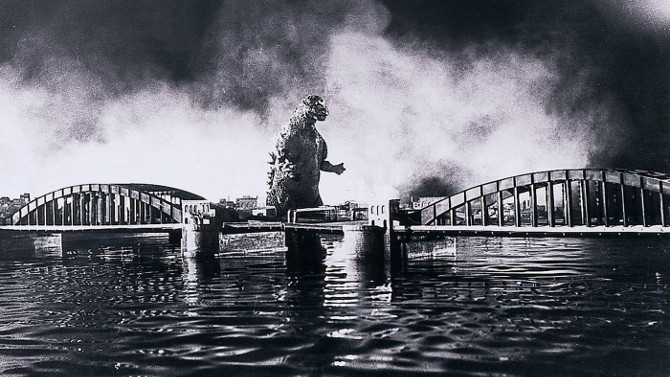
Go Go Godzilla
GodzillaOctober 13, 2016From a modern perspective, it may not be immediately recognizable that the classic 1954 monster movie Godzilla was, in many ways, a product of its time. Highlighting the anxiety of the nuclear age at the height of The Cold War, the gargantuan reptile first appears after a hydrogen bomb test in the middle of the ocean. Even this occurrence that starts off the film is based on reality, as the United States tested a giant nuclear weapon on March 1st, 1954, under the code name Castle Bravo. Fishermen, who were outside of the radius, were hit by the fallout from the blast, being covered with copious amounts of coral and radioactive ash. One man died following the event, creating an onslaught of international press that questioned these tests (though, other articles impugned the men on the vessel, suggesting that they were spies).
-
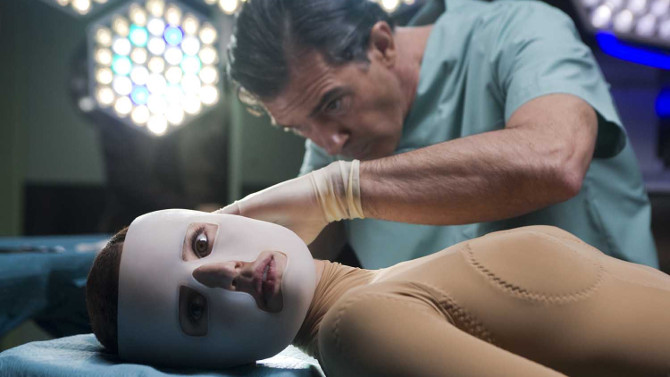
Under My Skin
The Skin I Live InAugust 26, 2016Three weeks ago today, I reviewed Tie Me Up! Tie Me Down!, a 1989 film directed by Pedro Almodóvar that starred Antonio Banderas. I said that in some ways it was similar to another motion picture that features the iconic director and actor – 2011's The Skin I Live In, which will be reviewed here today. Feeling like a modern take on the Frankenstein story (or perhaps Bride of Frankenstein), Banderas plays Robert Ledgard, a plastic surgeon and scientist at the forefront of his field. He has been successful in developing a type of artificial skin that is resistant to burns as well as insect bites. Controversial in the scientific community, he claims to have only tested it on mice – though when he hints that he has used it on a human being, he is strictly prohibited from continuing his research.

